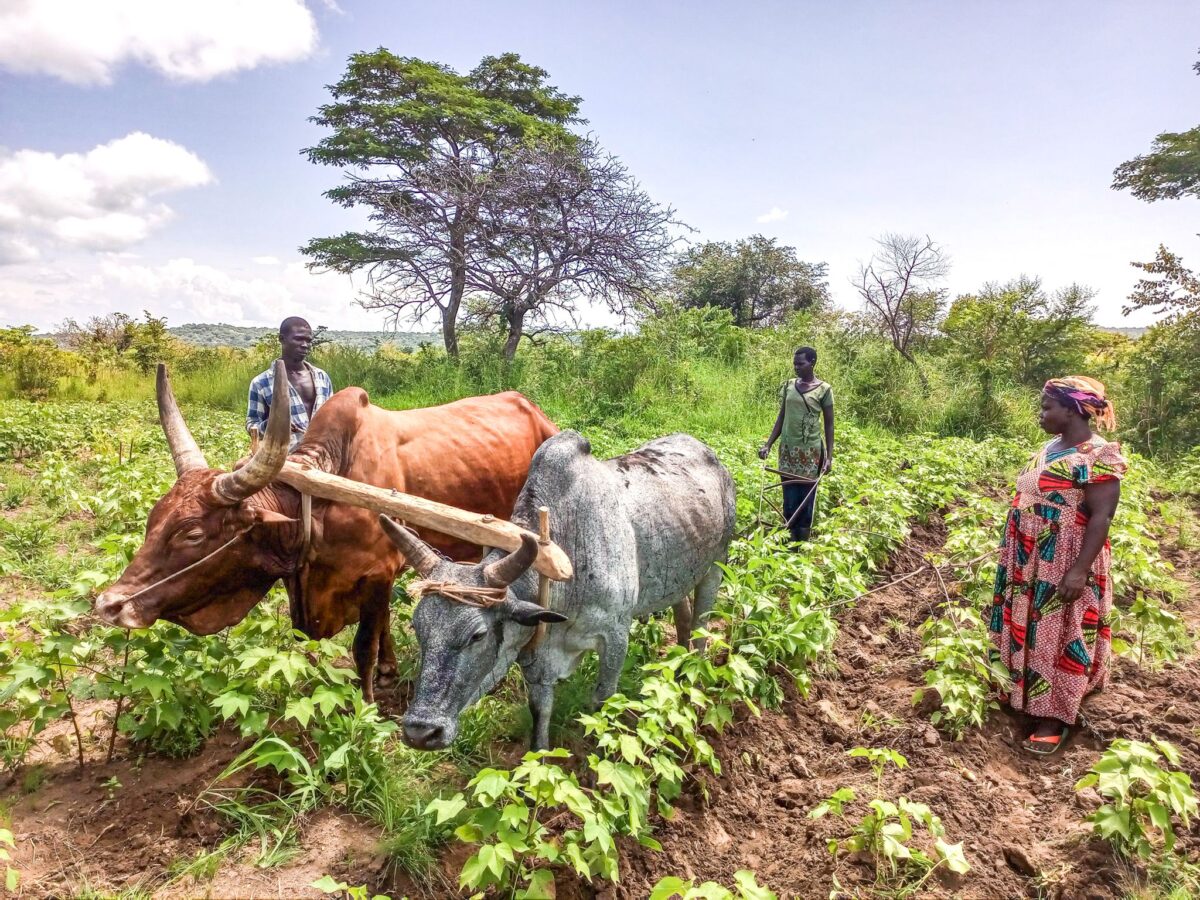 Stories
Stories
March 8, 2023 • 2 min read
Field plowing and tractor driving on farms has traditionally been perceived as a man’s role in Uganda. The Kacel Watwero community group in Lamwo district, northern Uganda is challenging this stereotype. By training young women to operate farm machinery, they hope to improve their income-earning ability, for themselves and their families.
The Kacel Watwero group was established in 2019 as a Village Savings and Loan Association (VSLA), and offers members opportunities to access affordable finance. Besides saving and lending money, the group of 25, which is almost entirely made up of women, now also work together on larger commercial farming.
Markets for Youth
Last year, the group was approached by Gulu Agricultural Development Company (GADC), a partner on the Markets for Youth program. The Markets for Youth program aims to create dignified and fulfilling work in the agricultural sector for 300,000 young women and men within 18 Districts in Uganda. This includes 30,000 refugees and 15,000 young people living with disabilities. The program is delivered in partnership with the Mastercard Foundation and 22 national partners from the private sector and civil society, including GADC. It has reached over 103,000 youth so far; over 86,000 of whom are actively engaged in work. 73,000 of the youth in work are already making meaningful savings.
GADC introduced the group to key concepts, knowledge and skills for large-scale organic farming. Makeba Jennifer, a mother of four and the leader of the group, says they have since become an inspiration to many other young women in their sub-county.
“It used to take us five days to weed one acre of cotton or sim-sim using hand hoes. We had no idea that cows could be used to weed a garden. With the cow plow, half a day is enough to sweep all weeds clean in a one acre garden. GADC sent an instructor who trained us in planting, spacing the crops, quality seeds as well as how to weed using a cow plow,” Jennifer says.

While using the cow plow is more costly to weed than using the hand-hoe, it brings out new soil and help the crops to grow faster. As a result, the group saves a lot of time and energy and fertilizers can be applied more easily as well.
Plans for Future Growth
The group currently owns two acres of cotton and sesame, and individual members also grow on their own land. They plan to buy more bulls to cater for their demanding work. While production is running smoothly, GADC have also established a customer base by connecting the group to local markets.
Jennifer is a real advocate for the program, and a role model in her community. She’s optimistic about her future and keen to empower young women locally.
“Young women shouldn’t be be idle. We need to seize opportunities to uplift ourselves. The group has more women than men because we believe that if women are empowered, we can have a more peaceful and economically strong society and break the stereotype that only men should earn money in our community.”
